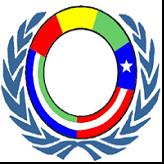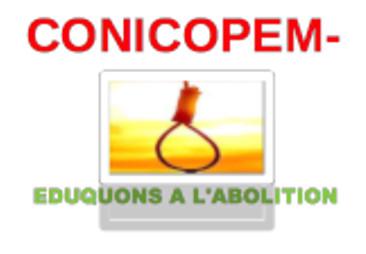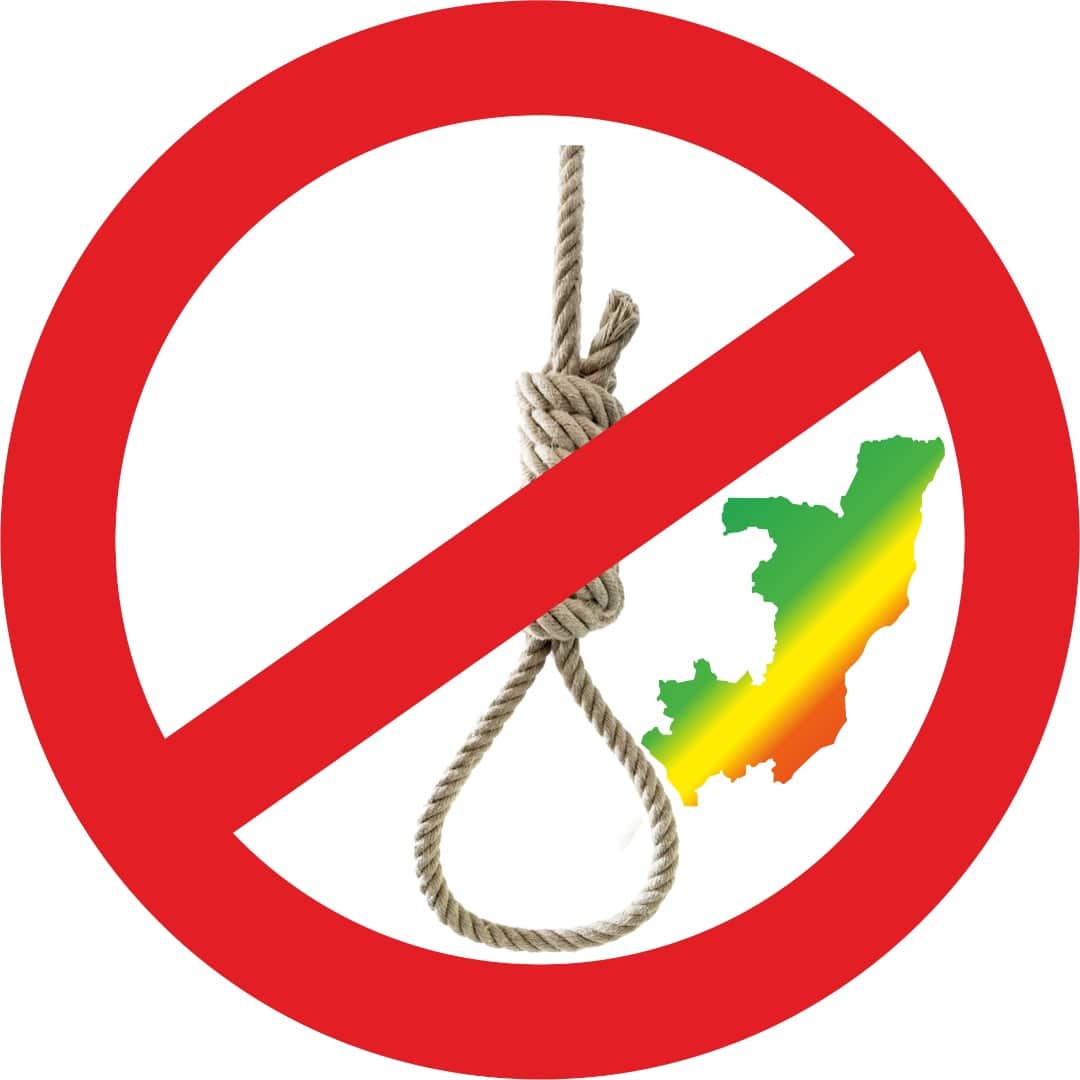Your search “Keep%20ethe%20eDeath%20ePenalty%abolished%20ein%20ethe%20ePhilippfines%20e%20e%20e%20e%20e%20e%20e%20e%20e%20e/page/www.deathpenaltyindia.com/img/pages/resources/20e17Statistics.pdf ”
Document(s)
Executing the Innocent: the Next Step in the Marshall Hypotheses
By Eric G. Lambert / Alen W. Clarke / New York University (NYU) / Laurie Anne Whitt, on 1 January 2000
2000
Article
United States
More details See the document
The study results indicate that when test subjects, many of whom are likely retributivists, are presented with information about the problem of innocence, the drop in support for capital punishment spans all points on the Likert scale. Our study suggests that more rigorous testing may demonstrate that an individual’s knowledge of the “innocence problem” can generate more profond changes in attitudes toward the death penalty than indicted by previous studies of the marshall Hypotheses.
- Document type Article
- Countries list United States
- Themes list Public opinion, Innocence,
Document(s)
Rewriting History: the Use of Feminist Narrative to Deconstruct the Myth of the Capital Defendant
By Francine Banner / New York University (NYU), on 1 January 2000
Article
United States
More details See the document
In the past thirty years, American attitudes towards those convicted of crimes have followed a devastating progression toward the dehumanization of criminal defendants. The evolution of law and policy has mirrored these changing attitudes. The philosophies behind incarceration have shifted from “facilitat[ing inmates’] productive re-entry back into the free world” to “using imprisonment merely to punish criminal offenders by … “containing’ them behind bars … for as long as possible.” 4 Rather than preventing crime or rehabilitating offenders, incarceration has become a means to satisfy society’s desire for vengeance and retribution. Responding to this push to punish, prosecutors in their haste to obtain a conviction are more likely to stress the heinousness of crimes rather than questioning the circumstances surrounding …
- Document type Article
- Countries list United States
- Themes list Networks,
Document(s)
The Unusualness of Capital Punishment
By Louis D. Bilionis / Ohio Northern University Law Review, on 1 January 2000
Article
United States
More details See the document
The order struck during the regulatory years following Furman v. Georgia and Gregg v. Georgia has been inverted. Executions once were rarities of newsworthy moment; now, they are nearly twice-a-week occurrences that often pass with nary a notice. Skeptical scrutiny of death penalty cases once was the professed and practiced mission of the federal judiciary; now, words like weariness, ennui, and resentment seem better choices to capture the spirit of the federal courts when confronted with complaints from death row. As we will see, the various lines of objection join to form a sophisticated and comprehensive critique.
- Document type Article
- Countries list United States
- Themes list Networks,
Document(s)
Up the River Without a Procedure: Innocent Prisoners and Newly Discovered Non-DNA Evidence in State Courts.
By Daniel Medwed / Arizona Law Review, on 1 January 2005
2005
Article
United States
More details See the document
This Article aims to provide an examination: An analysis of the state procedures that prisoners may employ after trial to litigate innocence claims grounded on newly discovered non-DNA evidence. Ultimately, the result of this examination is far from sanguine. Little-altered in decades beyond the trend toward recognizing the benefits of DNA testing, the structure of most state procedures means that a prisoner’s quest for justice may turn on the fortuity that a biological sample was left at the crime scene and preserved over time. The fact that DNA testing provides a modicum of certainty to an innocence claim does not imply that claims lacking the possibility of such certainty are spurious; on the contrary, DNA has unearthed holes in the criminal justice system, holes that are likely also prevalent in cases without biological evidence.
- Document type Article
- Countries list United States
- Themes list Innocence, Networks,
Document(s)
Executing The Innocent and Support for Capital Punishment: Implications for Public Policy
By Francis T. Cullen / James D. Unnver / Criminology and Public Policy, on 1 January 2005
Article
United States
More details See the document
The issue of whether innocent people have been executed is now at the center of the debate concerning the legitimacy of capital punishment. The purpose of this research was to use data collected by the Gallup Organization in 2003 to investigate whether Americans who believed that an innocent person had been executed were less likely to support capital punishment. We also explored whether the association varied by race, given that African Americans are disproportionately affected by the death penalty. Our results indicated that three-quarters of Americans believed that an innocent person had been executed for a crime they did not commit within the last five years and that this belief was associated with lower levels of support for capital punishment, especially among those who thought this sanction was applied unfairly. In addition, our analyses revealed that believing an innocent person had been executed had a stronger association with altering African American than white support for the death penalty.A key claim of death penalty advocates is that a high proportion of the public supports capital punishment. In this context, scholars opposing this sanction have understood the importance of showing that the public’s support for executing offenders is contingent and shallower than portrayed by typical opinion polls. The current research joins this effort by arguing that the prospect of executing innocents potentially impacts public support for the death penalty and, in the least, creates ideological space for a reconsideration of the legitimacy of capital punishment.
- Document type Article
- Countries list United States
- Themes list Innocence,
Document(s)
Examining Public Opinion about Crime and Justice: A Statewide Study
By Eric Johnston / Barbara Sims / Criminal Justice Policy Review, on 1 January 2004
2004
Article
United States
More details See the document
As noted by Flanagan (1996), public opinion polls about crime and justice can act as a social barometer providing important data to policy makers regarding what the public is willing, or is not willing, to accept when it comes to proposed legislation and/or intervention programming. This paper reports findings from the 2001 Penn State Poll, a random telephone survey of Pennsylvanians, 18 years of age or older, in which citizens were asked about their attitudes toward and perceptions of such issues as fear of crime, capital punishment, the most important goal of prison, and where they would most like to see their tax dollars spent (building more prisons vs. early intervention programs with troubled youth). Significant differences were found within certain demographic groups across these sets of questions, and in a predictive model, gender, race/ethnicity, and education had a greater impact on citizens’ support for capital punishment than did their fear of crime. Overall, findings suggest that the public is not as punitive as it is sometimes believed to be by legislators and policy makers.
- Document type Article
- Countries list United States
- Themes list Public opinion,
Document(s)
Imprisoned by the Past: Warren McCleskey and the American Death Penalty
By Jeffrey L. Kirchmeier / Oxford University Press, on 1 January 2015
2015
Book
United States
More details See the document
Imprisoned by the Past: Warren McCleskey and the American Death Penalty examines the long history of the American death penalty and its connection to the case of Warren McCleskey, revealing how that case marked a turning point for the history of the death penalty. In this book, Jeffrey L. Kirchmeier explores one of the most important Supreme Court cases in history, a case that raised important questions about race and punishment, and ultimately changed the way we understand the death penalty today.
- Document type Book
- Countries list United States
- Themes list Fair Trial,
Document(s)
Putting Them There, Keeping Them There, and Killing Them: An Analysis of State-Level Variations in Death Penalty Intensity
By William S. Lofquist / Iowa Law Review, on 1 January 2002
2002
Article
United States
More details See the document
The landscape of the American death penalty is diverse. Though death penalty attitudes show a remarkable and increasing degree of homogeneity by region, race, gender, religion, and other factors, the actual practice of the death penalty varies substantially from region to region, and even from state to state. While these variations are widely recognized, they are not widely studied or understood. The lack of attention paid to the actual practice of the death penalty in different states and regions, the patterns that contribute to its use, and the factors associated with these patterns represents a substantial and troubling gap in our knowledge of an issue as widely studied as the death penalty.
- Document type Article
- Countries list United States
- Themes list Networks,
Document(s)
The Next Frontier: National Development, Political Change, and the Death Penalty in Asia
By David T. Johnson / Franklin E. Zimring / Oxford University Press, on 1 January 2009
2009
Book
China
More details See the document
Authors David Johnson, an expert on law and society in Asia, and Franklin Zimring, a senior authority on capital punishment, utilize their research to identify the critical factors affecting the future of the death penalty in Asia. They found that when an authoritarian state experienced democratic reform, such as in Taiwan and South Korea, the rate of executions dropped sharply. Johnson and Zimring also found that politics, instead of culture or tradition, is the major obstacle to the end of capital punishment in Asia.
- Document type Book
- Countries list China
Document(s)
Capital Punishment and the Bible
By Gardner C. Hanks / Herald Press, on 1 January 2002
2002
Book
United States
More details See the document
Capital Punishment and the Bible goes beyond proof-text arguments to examine biblical statements about capital punishment in their historical contexts and for present meaning. Does the use of capital punishment in the USA meet Old Testament standards for fairness? How did Jesus and the early church extend God’s love in restorative justice? Gardner C. Hanks convincingly shows that the use of the death penalty is not consistent with Jesus’ call for love and forgiveness.
- Document type Book
- Countries list United States
- Themes list Religion ,
Document(s)
Videos of the 4th World Congress
By Ensemble contre la peine de mort (ECPM), on 1 January 2010
2010
Arguments against the death penalty
frMore details See the document
This video was filmed at the 4th World Congress Against the Death Penalty in Geneva in February 2010. Speaker is Elizabeth Zitrin at the opening session.
- Document type Arguments against the death penalty
- Themes list Networks,
- Available languages Les vidéos du 4ème congrès mondial
Document(s)
Racial Differences in Death Penalty Support and Opposition: A Preliminary Study of White and Black College Students
By Morris Jenkins / Eric G. Lambert / David N. Baker / Journal of Black Studies, on 1 January 2005
2005
Article
United States
More details See the document
Although the death penalty has a long history, it is not without debate and differing views. There appears to be a gap between Whites and Blacks in terms of their support of capital punishment. Students at a Midwestern university were surveyed to determine whether there were differences between the two groups of students in reasons to support or oppose the death penalty. In bivariate tests, there were significant differences between White and Black students on 15 of 16 measures for reasons for supporting or opposing capital punishment. These differences continued for 10 of the 16 measures even after multivariate analysis controlled for the effects of gender, age, and academic level. The results are discussed.
- Document type Article
- Countries list United States
- Themes list Public opinion, Public debate,
Document(s)
Danthong Breen – Union for Liberty
By Ensemble contre la peine de mort (ECPM), on 8 September 2020
2020
Academic report
Thailand
frMore details See the document
Danthong Breen, from the NGO Union for Liberty, based in Thailande, explains why the death penalty is torture.
- Document type Academic report
- Countries list Thailand
- Themes list Torture,
- Available languages Danthong Breen - Union pour les libertés
Document(s)
Not to Decide is to Decide: The U.S. Supreme Courts Thirty-Year Struggle With One Case About Competency to Waive Death Penalty Appeals
By Phyllis L. Crocker / Wayne Law Review 49(4), 885-938, on 1 January 2004
2004
Article
United States
More details See the document
In 1995, the U.S. Supreme Court dismissed Rees v. Peyton, Rees was a death penalty case in which the petitioner sought to withdraw his petition for writ of certiorari so that he could be executed. The Court stayed the proceedings after Rees was found incompetent to waive his appeal, but the Court did not dismiss the case until after Rees died of natural causes. Rees pended in the Court during the terms of three Chief Justices. Even though the Court underwent major changes in personnel and philosophy during those years, the Court’s treatment of Rees was essentially the same–to hold the case in abeyance. This article chronicles the extraordinary history of Rees in the U.S. Supreme Court for those thirty years.
- Document type Article
- Countries list United States
- Themes list Networks,
Document(s)
Pakistani Christian Woman Sentenced to Death
By Amnesty International / British Pakistani Christian Association, on 1 January 2010
2010
Legal Representation
More details See the document
On 8 November, the 45-year-old mother of five children was found guilty of blasphemy and sentenced to death under Section 295B and 295C of Pakistan’s Penal Code, for insulting the Prophet Muhammad, by a court in Nankana, around 75km (45 miles) west of the city of Lahore in Punjab province.
- Document type Legal Representation
- Themes list Networks,
Document(s)
Executing the Insane: The Story of Scott Panetti
By The Texas Defender Service / Google videos, on 1 January 2007
2007
Legal Representation
More details See the document
Scott Panetti was accused of killing his parents in law and convicted. Scott suffered from severe mental illness for many years, Schizophrenia. He dismissed his legal counsel and represented himself at trial wearing a cow boy suit and asking irrelavent questions. This video tells the story of Scott Panetti’s case and questions whether he was mentally stable to attend trial and represent himself.
- Document type Legal Representation
- Themes list Networks,
Document(s)
The ‘Shocking Truth’ About the Electric Chair: An Analysis of the Unconstitutionality of Electrocution
By Dawn Macready / Ohio Northern University Law Review, on 1 January 2000
2000
Article
United States
More details See the document
Cruel and unusual punishment, as prohibited by the Eighth Amendment of the United States Constitution, encompasses punishment that amounts to torture and barbarity, cruel and degrading punishment not known to the common law, and punishment so disproportionate to the offense as to shock the moral sense of the community. Thus, contained in the Eighth Amendment is a fundamental respect for humanity. For the imposition of a death sentence, the trier is constitutionally mandated to take into account the character and record of the individual offender and the circumstances of the particular offense. What constitutes cruel and unusual punishment?
- Document type Article
- Countries list United States
- Themes list Cruel, Inhuman and Degrading Treatment and Punishment, Electrocution,
Document(s)
Chivalry is Not Dead: Murder, Gender, and the Death Penalty
By Naomi R. Shatz / Steven F. Shatz / University of San Francisco, on 1 January 2011
2011
Article
United States
More details See the document
Chivalry – that set of values and code of conduct for the medieval knightly class – has long influenced American law, from Supreme Court decisions to substantive criminal law doctrines and the administration of criminal justice. The chivalrous knight was enjoined to seek honor and defend it through violence and, in a society which enforced strict gender roles, to show gallantry toward “ladies” of the same class, except for the women of the knight’s own household, over whom he exercised complete authority. This article explores, for the first time, whether these chivalric values might explain sentencing outcomes in capital cases. The data for the article comes from our original study of 1299 first degree murder cases in California, whose death penalty scheme accords prosecutors and juries virtually unlimited discretion in making the death-selection decision. We examine sentencing outcomes for three particular types of murder where a “chivalry effect” might be expected – gang murders, rape murders and domestic violence murders. In cases involving single victims, the results were striking. In gang murders, the death sentence rate was less than one-tenth the overall death sentence rate. By contrast, in rape murder cases, the death sentence rate was nine times the overall death sentence rate. The death sentence rate for single-victim domestic violence murders was roughly 25% lower than the overall death sentence rate. We also examined, through this study and earlier California studies, more general data on gender disparities in death sentencing and found substantial gender-of-defendant and gender-of-victim disparities. Women guilty of capital murder are far less likely than men to be sentenced to death, and defendants who kill women are far more likely to be sentenced to death than defendants who kill men. We argue that all of these findings are consistent with chivalric norms, and we conclude that, in the prosecutors’ decisions to seek death and juries’ decisions to impose it, chivalry appears to be alive and well.
- Document type Article
- Countries list United States
- Themes list Women,
Document(s)
The Use of Peremptory Challenges in Capital Murder Trials: A Legal and Empirical Analysis
By George Woodworth / David C. Baldus / David Zuckerman / University of Pennsylvania Journal of Constitutional Law / Neil Alan Weiner / Barbara Broffitt, on 1 January 2001
2001
Article
United States
More details See the document
One of the largely unique aspects of the American jury system is that it confers upon the parties the unilateral power – in the form of peremptory challenges – to remove prospective jurors for any non-racial or non-gender-based reason. This article presents an overview of the literature on peremptory challenges, and an empirical analysis of their use in Philadelphia capital cases in the 1980s and 1990s.
- Document type Article
- Countries list United States
- Themes list Fair Trial,
Document(s)
Towards an Islamic Critique of Capital Punishment
By Robert Postawko / Journal of Islamic and Near Eastern Law, on 1 January 2002
2002
Article
Iran (Islamic Republic of)
More details See the document
In general, Muslim nations recognize the validity of the death penalty, and many frequently impose it. According to Amnesty International, between 1985 and mid-1988, Saudi Arabia executed 140 prisoners for the crimes of murder, robbery with violence, drug smuggling or distribution, and adultery. During the same period, Pakistan executed 115, primarily for the crime of murder. Hundreds every year faced the firing squad in Iraq for murder, desertion, treason, sabotage, and economic corruption. At the same time, the Islamic Republic of Iran executed more than 743 inmates for murder, drug crimes, political offenses, prostitution, adultery and other “moral offenses,” including “being corrupt on earth” and “being at enmity with God.” In face of the widespread acceptance of the death penalty within the Muslim world, this essay explores the contours of an Islamic argument against capital punishment. The argument is not, and cannot be, an appeal for the abolition of the death penalty in all circumstances. It does call into question, however, the legitimacy – indeed, the legality in accordance with the principles of classical Islamic law, or the Shari’ah – of capital punishment as it is practiced in the era of Islamization.
- Document type Article
- Countries list Iran (Islamic Republic of)
- Themes list Religion , Capital offences, Most Serious Crimes,
Document(s)
The Death Penalty: Should the Judge or the Jury Decide Who Dies?
By John H. Blume / Theodore Eisenberg / Sheri Lynn Johnson / Cornell Law Review / Martin T. Wells / Valerie P. Hans / Amelia Courtney Hritz / Caisa E. Royer, on 1 January 2014
2014
Academic report
More details See the document
This article addresses the effect of judge versus jury decision making through analysis of a database of all capital sentencing phase hearing trials in the state of Delaware from 1977-2007. Over the three decades of the study, Delaware shifted responsibility for death penalty sentencing from the jury to the judge. Currently, Delaware is one of the handful of states that gives the judge the final decision making authority in capital trials. Controlling for a number of legally-relevant and other predictor variables, we find that the shift to judge sentencing significantly increased the number of death sentences. Statutory aggravating factors, stranger homicides, and the victim’s gender also increased the likelihood of a death sentence, as did the county of the homicide. We reflect on the implications of these results for debates about the constitutionality of judge sentencing in capital cases.
- Document type Academic report
- Themes list Statistics, Country/Regional profiles,
Document(s)
The Failure of Mitigation?
By Robert J. Smith / Hastings Law Journal, on 1 January 2014
Article
United States
More details See the document
A vast literature details the crimes that condemned inmates commit, but very little is known about the social histories of these capital offenders. For example, how many offenders possessed mitigating characteristics that demonstrate intellectual or psychological deficits comparable to those shared by classes of offenders categorically excluded from capital punishment? Did these executed offenders suffer from intellectual disability, youthfulness, mental illness, or childhood trauma? The problem with this state of affairs is that the personal characteristics of the defendant can render the death penalty an excessive punishment regardless of the characteristics of the crime. This Article begins to fill the mitigation knowledge gap by describing the social histories of the last hundred offenders executed in America. Scouring state and federal court records, this Article documents the presence of significant mitigation evidence for eighty-seven percent of executed offenders. Though only a first step, our findings suggest the failure of the Supreme Court’s mitigation project to ensure the only offenders subjected to a death sentence are those with “a consciousness materially more depraved” than that of the typical murderer. Indeed, the inverse appears to be true: the vast majority of executed offenders possess significant functional deficits that rival — and perhaps outpace — those associated with intellectual impairment and juvenile status; defendants that the Court has categorically excluded from death eligibility.
- Document type Article
- Countries list United States
- Themes list Mental Illness, Arbitrariness, Intellectual Disability,
Document(s)
Failure to Apply the Flynn Correction in Death Penalty Litigation: Standard Practice of Today Maybe, but Certainly Malpractice of Tomorrow
By John E. Wright / John Niland / Cecil R. Reynolds / Journal of Psychoeducational Assessment / Michal Rosenn, on 1 January 2010
2010
Article
United States
More details See the document
The Flynn Effect is a well documented phenomenon demonstrating score increases on IQ measures over time that average about 0.3 points per year. Normative adjustments to scores derived from IQ measures normed more than a year or so prior to the time of testing an individual have become controversial in several settings but especially so in matters of death penalty litigation. Here we make the argument that if the Flynn Effect is real, then a Flynn Correction should be applied to obtained IQs in order to obtain the most accurate estimate of IQ possible. To fail to provide the most accurate estimate possible in matters that are truly life and death decisions seems wholly indefensible.
- Document type Article
- Countries list United States
- Themes list Networks,
Document(s)
Amnesty International Death Penalty Awareness Weeks guide
By Amnesty International, on 1 January 2012
2012
Campaigning
More details See the document
This is a guide for preparing events against the death penalty. It includes a “How to” guide for holding different types of events. It also provides a short factsheet on death penalty information in the United States.
- Document type Campaigning
- Themes list Networks,
Document(s)
Capital punishment and American culture
By David Garland / Punishment & Society 7, 347-376, on 1 January 2005
2005
Article
United States
More details See the document
This is an essay about capital punishment and American culture. Its point of departure is the recent publication of several books and articles suggesting that the USA’s retention of the death penalty is an expansion of an underlying cultural tradition that creats an elective affinity between American society and the execution of criminal offenders. The implicit – and sometimes explicit claim – of this new literature is that today’s capital punishment system is an insurance of ‘American exceptionalism’, an expression of a deep and abiding condition that has shaped the American nation from its formative years to the present.
- Document type Article
- Countries list United States
- Themes list Networks,
Document(s)
Siting the Death Penalty Internationally
By Valerie West / David F. Greenberg / Law and Social Inquiry, on 1 January 2008
2008
Article
More details See the document
We examine sources of variation in possession and use of the death penalty using data drawn from 193 nations in order to test theories of punishment. We find the death penalty to be rooted in a country’s legal and political systems, and to be influenced by its religious traditions. A country’s level of economic development, its educational attainment, and its religious composition shape its political institutions and practices, indirectly affecting its use of the death penalty. The article concludes by discussing likely future trends.
- Document type Article
- Themes list Networks,
Document(s)
Crossing the line: Rape-murder and the death penalty
By Phyllis L. Crocker / Ohio Northern Law Review 26(3), 689-723., on 1 January 2000
2000
Article
United States
More details See the document
When a woman is raped and then murdered, it is among the most horrifying of crimes. It is also, often, among the most sensational, notorious, and galvanizing of cases. In 1964, Kitty Genovese was raped and murdered in Queens, New York. Her murder sparked soul-searching across the country because her neighbors heard her cries for help and did not respond: it made us question whether we had become an uncaring people. During the 1970s and 80s a number of serial killers raped and murdered their victims: including Ted Bundy in Florida and William George Bonin, the “Freeway Killer,” in Southern California. In the 1990s, the sexual assault-murder of seven- year-old Megan Kanka in New Jersey contributed to a firestorm of states passing sex offender notification statutes. Rolando Cruz was released from Illinois death row in 1995, after serving eleven years for a crime he did not commit: the rape and murder of ten-year-old Jeanine Nicarico. The crime itself sent shock waves through the Chicago metropolitan area and pressure to quickly solve it contributed to Cruz’s arrest and conviction. In each instance the rape- murder terrified us and made us want to impose the severest of punishments. This explores the crime and punishment of those convicted of committed rape .murder
- Document type Article
- Countries list United States
- Themes list Networks,
Document(s)
The Effect of Race, Gender, and Location on Prosecutioral Decisions to Seek the Death Penalty in South Carolina
By Isaac Unah / Michael J. Songer / South Carolina Law Review, on 1 January 2006
2006
Article
United States
More details See the document
This Article analyzes the factors that influence the decisions of South Carolina prosecutors to seek the death penalty. Professor Unah and Mr. Songer employ statistical methods to examine the legal and nonlegal factors that shape this decision-making process. Controlling for political factors, this Article finds that the race of the victim, gender, and rural crime locations are significant considerations in the decision to seek the death penalty. Further, Professor Unah and Mr. Songer argue that these nonlegal factors undermine the legal guidelines that are intended to channel and steer the decision-making process. This Article highlights the arbitrary nature of the decisions that result from these considerations, and it concludes by challenging the legitimacy of a process influenced by these factors.
- Document type Article
- Countries list United States
- Themes list Networks,
Document(s)
A Summary Report on Public Support for the Death Penalty in Ghana
By University of Cambridge / Peter Atupare Atudiwe, on 1 January 2014
2014
Academic report
More details See the document
This report provides evidence on public attitudes to the death penalty in Ghana, withan empirical focus on Accra.
- Document type Academic report
- Themes list Public opinion, Statistics,
Document(s)
Tessie Hutchinson and the American System of Capital Punishment
By Earl F. Martin / Maryland Law Review, on 1 January 2000
2000
Article
United States
More details See the document
The story focuses on Tessie Hutchinson, who was selected by the communal lottery for execution; her only sin was to live in a village that had the tradition of stoning one of its inhabitants each year. This paper suggests some ways that the life of America’s death penalty mirrors the art of “The Lottery.” The author comments on the “masking of evil,” the execution of the innocent, the arbitrariness in selecting those who die, the search for justification, and the brutality of the death penalty. In “The Lottery,” the tradition of the stoning was so embedded in tradition and its administration was so formal and precise that the ultimate outcome of the tradition, the killing of a fellow human being, was sanitized and unexamined. In America, the net effect of the bureaucratization of executions is to give those who implement them and those who receive reports of them a sense of sterility and mundaneness that should never accompany the state’s killing of its own. Although proponents of capital punishment in America argue that the chances that an innocent person will be executed are slim, history shows that it has occurred. It was no comfort to Tessie Hutchinson that she was to be the only member of her village to be stoned that year. So it is no comfort to the innocent who are executed that each is only one of a small number of innocent people who have been killed by the state. The arbitrariness of the lottery in selecting who will be executed may not be so obvious in the selection of those who will be killed by the state in America. Still, random and arbitrary circumstances impact who is selected to be executed, circumstances such as the race and wealth of the defendant, the race of the victim, the quality of the defense counsel, the particular trial judge, and the State in which the crime occurs. Although there is no unequivocal evidence that the death penalty achieves some monumentally positive benefit for American society, support for it by the community persists, along with its brutality and cruelty. It is difficult to avoid the conclusion that a “thinly veiled cruelty keeps the custom alive.”
- Document type Article
- Countries list United States
- Themes list Networks,
Document(s)
Innocence Unmodified
By Emily Hughes / North Carolina Law Review , on 1 January 2010
2010
Article
United States
More details See the document
The Article proceeds in three parts. Part I explains the pivotal role that “actual” innocence has played in the Innocence Movement. It shows that even though the Innocence Movement has begun to broaden its DNA-based focus to include non-DNA-based claims, its goal has remained constant: achieving justice for “actually” innocent people. Part I then shows how the Innocence Movement has prioritized the cases of “actually” innocent people who were convicted through trial over “actually” innocent people who pleaded guilty. The prioritization of wrongful convictions derived from trials over wrongful convictions from pleas underscores how the Innocence Movement has overlooked the claims of people who have pleaded guilty and are not “actually” innocent, but who may still have strong wrongful conviction claims based on fundamental constitutional violations. Part II examines innocence unmodified in the context of trials and postconviction appeals. It asserts that one reason to protect innocence unmodified is because under the Court‟s existing jurisprudence, “actual” innocence alone is not enough to reverse a wrongful conviction. This is because the Supreme Court has not yet decided whether the Constitution forbids the execution of an “actually” innocent person who was convicted through a “full and fair” trial. Because the Court has not recognized a freestanding “actual” innocence claim, the “actual” innocence of a wrongly convicted person only matters as a door through which to allow a court to reach underlying constitutional claims. Part II uses the example of a recent Supreme Court decision, In Re Troy Davis, to highlight how an isolated prioritization of “actual” innocence does not achieve justice for wrongly convicted people. Part III examines innocence unmodified in the context of pleas. It reveals the degree to which the Court has itself polarized innocence in the context of pleas—prioritizing “actual” innocence over fundamental constitutional protections for all people.
- Document type Article
- Countries list United States
- Themes list Innocence,
Document(s)
Innocence, Error, and the ‘New Abolitionism’: A Commentary
By Sarat Austin / Criminology & Public Policy, on 1 January 2005
2005
Article
United States
More details See the document
If statistics are any indication, the system may well be allowing some innocent defendants to be executed.
- Document type Article
- Countries list United States
- Themes list Innocence,
Document(s)
Innocents Convicted: An Empirically Justified Factual Wrongful Conviction Rate
By D. Michael Risinger / Journal of Criminal Law and Criminology, on 1 January 2007
2007
Article
United States
More details See the document
The news about the astounding accuracy of felony convictions in the United States, delivered by Justice Scalia and Joshua Marquis in the passage set out epigrammatically above, would be cause for rejoicing if it were true. Imagine. Only 27 factually wrong felony convictions out of every 100,000! Unfortunately, it is not true, as the empirical data analyzed in this article demonstrates. To a great extent, those who believe that our criminal justice system rarely convicts the factually innocent and those who believe such miscarriages are rife have generally talked past each other for want of any empirically-justified factual innocence wrongful conviction rate. This article remedies at least a part of this problem by establishing the first such empirically justified wrongful conviction rate ever for a significant universe of real world serious crimes: capital rape-murders in the 1980’s. Using DNA exonerations for capital rape-murders from 1982 through 1989 as a numerator, and a 406-member sample of the 2235 capital sentences imposed during this period, this article shows that 21.45%, or around 479 of those, were cases of capital rape murder. Data supplied by the Innocence Project of Cardozo Law School and newly developed for this article show that only 67% of those cases would be expected to yield usable DNA for analysis. Combining these figures and dividing the numerator by the resulting denominator, a minimum factually wrongful conviction rate for capital rape-murder in the 1980’s emerges: 3.3%. The article goes on to consider the likely ceiling accompanying this 3.3% floor, arriving at a slightly softer number for the maximum factual error rate of around 5%. The article then goes on to analyze the implications of a factual error rate of 3.3%-5% for both those who currently claim errors are extremely rare, and those who claim they are extremely common. Extension of the 3.3%-5% to other capital and non-capital categories of crime is discussed, and standards of moral duty to support system reform in the light of such error rates is considered at length.
- Document type Article
- Countries list United States
- Themes list Networks,
Document(s)
Staying Alive: Executive Clemency, Equal Protection, and the Politics of Gender in Women’s Capital Cases
By Elizabeth Rapaport / Buffalo Criminal Law Review, on 1 January 2001
2001
Article
United States
More details See the document
In this Article, I will review the matrix in which executive decisions in women’s capital clemency cases are made, a matrix supplied by modern equal protection law, the nature and scope of the clemency power, gender politics, and contemporary death row. I will then conduct two thought experiments. Each invented case tests the relevance of gender in legally and politically acceptable contemporary clemency decisions. The goal is to understand the politics and law of granting or denying that very rare boon-commutation of sentence – to a female death row prisoner. The exercise offers support for two conclusions. In the age of formal equality, women cannot be granted clemency simply because they are women. The rhetoric of chivalry is untenable for the contemporary executive. A governor who is courageous and rhetorically skillful, however, can sometimes successfully defend the commutation of the death sentence of a woman as a proper use of the power to grant mercy, done for her sake, the class she exemplifies, the conscience of the governor, and the public.
- Document type Article
- Countries list United States
- Themes list Women, Clemency,
Document(s)
Words beyond death row
By Ensemble contre la peine de mort (ECPM), on 1 January 2013
2013
Multimedia content
frMore details See the document
English version starts at 15 minutes and 59 seconds. ‘Words beyond death row’, extracts from testimonies of death row prisoners illustrated by a photo screening, in partnership with PhotoEspaña. This movie was presented during the 5th World Congress against the death penalty in Madrid in June 2013, by Ensemble contre la peine de mort – ECPM (Together against the death penalty) #Abolition201
- Document type Multimedia content
- Themes list Death Row Conditions, Death Penalty,
- Available languages Des mots par-delà le couloir
Document(s)
Finality Without Fairness: Why We Are Moving Towards Moratoria on Executions, and the potential Abolition of Capital Punishment
By Ronald J. Tabak / Connecticut Law Review, on 1 January 2001
2001
Article
United States
More details See the document
In the past several years, there has been a marked change in the climate with regard to public discourse about the death penalty in the United States. This is partly due to advances in DNA technology. This Article, in Part II, will address the impact that DNA testing has had on public discourse on capital punishment. In Part III, it will discuss the overall context in which public discourse has changed, and its likely impact on judges, prosecutors and governors dealing with capital cases. Finally, in Part IV, it will consider the broader implications of this change in climate, in leading to a moratorium on executions in Illinois, consideration of moratoria elsewhere, and potentially to abolition of capital punishment in this country.
- Document type Article
- Countries list United States
- Themes list Moratorium ,
Document(s)
Europe – A Death Penalty Free Zone: Commentary and Critique of Abolitionist Strategies
By Peter Hodgkinson / Ohio Northern University Law Review, on 8 September 2020
2020
Article
More details See the document
The purpose of this paper is to offer a critique and commentary on the European agenda on the abolition of the death penalty, and in so doing the author has relied heavily on the contributions made by a number of commentators to the recent Council of Europe publication, “The Death Penalty: Abolition in Europe”.
- Document type Article
- Themes list International law, Trend Towards Abolition,
Document(s)
The Death Penalty and Victims
By United Nations, on 1 January 2016
2016
International law - United Nations
More details See the document
This publication includes perspectives from a broad range of victims. While some of them are family members of crime victims, others are victims of human rights violations in application of the death penalty, of its brutality and traumatic effects. Victims’ perspectives, taken holistically, make a compelling case against the death penalty. When it comes to the death penalty, almost everyone loses. The perspectives of the victims on the death penalty as reflected in this book are likely to provoke tough discussions. This may be a welcome challenge. The publication was launched at a high-level event on 21st September at the UN in New York.The full recording of the event and the programme is available at: texte
- Document type International law - United Nations
- Themes list Innocence, Murder Victims' Families, Death Penalty,
Document(s)
Black Deaths Matter: The Race-of-Victim Effect and Capital Punishment
By Daniel Medwed / Northeastern, on 1 January 2020
2020
Article
United States
More details See the document
The racial dimensions of the death penalty are well-documented. Many observers assume this state of affairs derives from bias—often implicit and occasionally explicit—against black defendants in particular. Research points to an even more alarming factor. The race of the victim, not the defendant, steers cases in the direction of death. Regardless of the perpetrator’s race, those who kill whites are more likely to face capital charges, receive a death sentence, and die by execution than those who murder blacks. This short Essay adds a contemporary gloss to the race-of-victim effect literature, placing it in the context of the Black Lives Matter movement and showing how it relates to the broader, systemic devaluation of African-American lives.
- Document type Article
- Countries list United States
- Themes list Discrimination,
Document(s)
Psychological Assessments in Legal Contexts: Are Courts Keeping “Junk Science” Out of the Courtroom?
By Tess M. S. Neal / Psychological Science in the Public Interest, on 1 January 2020
Article
United States
More details See the document
This article reports the results of a two-part investigation of psychological assessments proposed as expert evidence in legal context.
- Document type Article
- Countries list United States
- Themes list Mental Illness, Death Penalty,
Document(s)
The Condemned
By The Intercept, on 1 January 2019
2019
International law - Regional body
More details See the document
Forty-three years after the Supreme Court reversed course and reinstated the death penalty, reliable data on the individuals sent to death row is maddeningly difficult to obtain. The Intercept set out to compile a comprehensive dataset on everyone sentenced to die in active death penalty jurisdictions since 1976. The findings show that capital punishment remains as “arbitrary and capricious” as ever.
- Document type International law - Regional body
- Themes list Statistics, Country/Regional profiles,
Document(s)
Anti-death penalty group launches handbook
By Manila Bulletin, on 1 January 2018
2018
Article
Philippines
More details See the document
The Catholic Bishops’ Conference of the Philippines-Episcopal Commission on Prison Pastoral Care, together with the Free Legal Assistance Group, the Commission on Human Rights, and other members of the Anti-Death Penalty Task Force, have launched a handbook opposing the capital punishment and the drug war.
- Document type Article
- Countries list Philippines
- Themes list Drug Offences, Death Penalty,
Document(s)
Contradictions in Judicial Support for Capital Punishment in India and Bangladesh: Utilitarian Rationales
By Saul Lehrfreund / Carolyn Hoyle / Asian Journal of Criminology, on 1 January 2019
2019
Article
Bangladesh
More details See the document
This article draws on two original empirical research projects that explored judges’ opinions on the retention and administration of capital punishment in India and Bangladesh. The data expose justice systems marred by corruption, incompetence, abuses of due process, and arbitrary and inconsistent treatment of defendants from arrest through to conviction and sentencing. It shows that those with the power to sentence to death have little faith in the integrity of the criminal process. Yet, a startling paradox emerges from these studies; despite personal knowledge of its flaws, judges have trust in the death penalty to deter crime and to realise other sentencing aims and feel retention benefits society. This is explained by reference to utilitarian values. Not only did our judges express strongly utilitarian justifications for sentencing people to death, in terms of their erroneous belief in its deterrent effect, but some also articulated utilitarian justifications for misconduct in pre-trial processes, suggesting that it was necessary to break the rules to secure convictions when the system was dysfunctional and ineffective.
- Document type Article
- Countries list Bangladesh
- Themes list Arbitrariness, Death Penalty,
Document(s)
Prosecutorial Discretion and Sentencing in Singapore
By Oxford University Commonwealth Law Journal / Kumaralingam Amirthalingam, on 1 January 2018
2018
Academic report
More details See the document
Singapore recently amended its laws to replace the mandatory death penalty regime for murder and drug trafficking with a discretionary sentencing regime under certain conditions. One of the conditions with respect to drug trafficking was that the convicted trafficker had to be granted a certificate by the Public Prosecutor stating that the trafficker had provided substantive assistance that led to the disruption of drug trafficking activities. That decision is not subject to judicial review except under very narrow circumstances, protected in the same way as the constitutionally protected prosecutorial discretion.
- Document type Academic report
- Themes list Due Process , Fair Trial, Death Penalty,
Document(s)
Seven Dates With Death
By Mike Holland, on 1 January 2019
2019
Multimedia content
United States
More details See the document
In Louisiana in the late 50s, Moreese Bickham, who was the oldest living survivor of death row, killed two members of the Ku Klux Klan to save his own life. He was sentenced to death and believes he was lucky enough to even have a trial as a black man in the south. Due to mental toughness, a timely supreme court decision, and a lot of hope, Bickham survived his death sentence. Whether he knew it or not, after that day, his life was not going to get any easier
- Document type Multimedia content
- Countries list United States
- Themes list Minorities, Death Row Conditions, Electrocution,
Document(s)
The Egypt Death Penalty Index
By Reprieve / Daftar Ahwal Data Research Center, on 1 January 2019
Multimedia content
More details See the document
The Egypt Death Penalty Index is a joint initiative of Reprieve and the Daftar Ahwal Data Research Center. The Index tracks Egypt’s use of capital punishment between 25 Janurary 2011 and 23 Septembrer 2018.
- Document type Multimedia content
- Themes list Death Penalty, Country/Regional profiles,

Member(s)
RADHOMA
on 30 April 2020
The network of human rights organisations and activists for the abolition of the death penalty (RADHOMA) is an abolitionist NGO of the DRC. 1. Fundation and headquarters Created on 10 October 2005 by member associations, the organization is a member of the Congolese Coalition Against the Death Penalty and of the World Coalition Against the Death […]
2020
Democratic Republic of the Congo

Member(s)
California People of Faith
on 30 April 2020
The California People of Faith (CPF) is a nonprofit organization 501, based in Los Angeles in the United States. CPF is an interfaith organization which advocates for alternatives to the death penalty in California and throughout the United States. CPF coordinates grassroots affords via chapters located throughout California, organizing Faith-based communities to resist corrosive temptation […]
United States

Member(s)
KontraS (Commission for the Disapeared and Victims of Violence)
on 30 April 2020
KontraS (Commission for the Disappeared and Victims of Violence) in Indonesia is a human rights NGO that deals with human rights issues in Indonesia, particularly civil and political rights. Abolition of the death penalty is one of its advocacy objectives. KontraS is a member of regional and national networks: Anti Death Penalty Asian Network (ADPAN) […]
Indonesia
Member(s)
ACAT Liberia
on 30 April 2020
Action by Christians for the Abolition of Torture in Liberia (ACAT Liberia) is an NGO based in Liberia. Created in 2003 and accredited in 2004, it fights to have a society free of torture and death penalty. To reach these goals, their main actions are: – Education and awareness, – advocacy, assistance, – cooperation, – […]
Liberia

Member(s)
Culture pour la Paix et la Justice (CPJ)
on 30 April 2020
The association Culture for Peace and Justice (CPJ) was founded in Kinshasa at the end of 1990s by a lawyer, Liévin Ngondji, and a law student, Molisho Ndarabu Eulethère. At a time of war, they wanted to fight against the practice of the Military court, an exceptional court established in 1997 that pronounced numerous death […]
Democratic Republic of the Congo

Member(s)
Adaleh Center for Human Rights Studies
on 30 April 2020
The Adaleh Center for Human Rights Studies is a non-governmental, non-profit organization founded on September 2003 and based in Amman, Jordan. Its mission is to enforce human rights values in Jordan and the Arab world, through building the capacity of non-governmental organizations and practitioners working in the field of human rights, democracy and justice. The […]
Jordan

Member(s)
Ordre des Barreaux Francophones et Germanophones de Belgique – OFBG
on 30 April 2020
The French- and German-speaking bars association (Ordre des barreaux francophones et germanophone, OBFG) brings together 10 French-speaking bar association and one German-speaking. It is regulated by Belgian penal laws.
Belgium
Member(s)
Iraqi Coalition against Death Penalty
on 30 April 2020
The Iraqi Coalition against Death Penalty (first called the Iraqi Alliance for the Prevention of the Death Penalty) promotes and enhances the values of human rights among Iraqi people. The Coalition works to define the culture of human rights in the judicial system. It also observes and documents violations of human rights in Iraq to […]
Iraq
Document(s)
Arcs of Global Justice
By Oxford University Press / Margaret M. Guzman / Diane Marie Amann, on 1 January 2018
2018
Book
More details See the document
This work honours William A. Schabas and his career with essays by luminary scholars and jurists from Africa, Asia, Europe, and the Americas. The essays examine contemporary, historical, cultural, and theoretical aspects of the many arcs of global justice with which Professor Schabas has engaged, in fields including public international law, human rights, transitional justice, international criminal law, and capital punishment.Table of Contents (regarding information on the death penalty)II. Capital PunishmentChapter 5: International Law and the Death Penalty: A Toothless Tiger, or a Meaningful Force for Change?Sandra L. BabcockChapter 6: The UN Optional Protocol on the Abolition of the Death PenaltyMarc BossuytChapter 7: The Right to Life and the Progressive Abolition of the Death PenaltyChristof Heyns and Thomas Probert and Tess BordenChapter 8: Progress and Trend of the Reform of the Death Penalty in ChinaZhao Bingzhi
- Document type Book
- Themes list International law, Death Penalty,

Member(s)
Society for Human Rights and Development Organisation (SHRDO)
on 30 April 2020
The Society for Human Rights and Development Organisation (SHRDO) – Formally MRU youth parliament – purpose is for peace & development and its activities are base on Sub Regional Peace Consolidations, Peace Promotion & Peace Maintenance across Sierra Leone, Liberia, Guinea & Ivory Coast by the Youngsters/ Youth Leaders themselves that agitates for regional reintegration, […]
2020
Sierra Leone
Member(s)
Bahrain Centre for Human Rights
on 30 April 2020
Bahrain

Member(s)
Coalition nigérienne contre la peine de mort
on 30 April 2020
Niger

Member(s)
Quaker United Nations Office, Geneva
on 30 April 2020
The Quaker United Nations Office (QUNO) serves as a Quaker presence at the United Nations (UN) in Geneva and New York. QUNO represents Quaker concerns at the international level, under the auspices of the Friends World Committee for Consultation (Quakers), the international Quaker body which has General Consultative Status with the UN. In addition to […]
Switzerland

Member(s)
Civil Rights and Social Justice Society (CRSJS)
on 30 April 2020
The Civil Rights and Social Justice Society (CRSJS) is a human rights NGO registered under the Travancore Cochin, Literary, Scientific and Charitable Societies Registration Act, 1955 in Kerala State, India in the year 1997. The members of CRSJS are persons committed to the promotion and protection of human rights in all spheres. However the main […]
India
Member(s)
Children Education Society (CHESO)
on 30 April 2020
The mandate of Children Education Society (CHESO) is: – To combat causes of most vulnerable children including children’s rights violations, poor governance, HIV/AIDS, poverty, climate change and reinforce realization of the children’s right to education -To eliminate bad policies and laws subjecting children to vulnerability – To end human rights violations subjecting children to vulnerability […]
United Republic of Tanzania
Member(s)
Forum Marocain pour la Vérité et la Justice
on 30 April 2020
Le Forum marocain pour la vérité et la justice (FMVJ) was created by victims of the “years of lead” between 1956 and 1999. It defines itself as a human rights association dedicated to defending the rights of victims of forced disappearances, arbitrary detention, torture and exile, and their families. The FMVJ seeks to establish the […]
Morocco

Member(s)
Center for Prisoner’s Rights (CPR)
on 30 April 2020
The Center for Prisoners’ Rights (CPR) was established in March 1995 as the first Japanese NGO specializing in prison reform. CPR‘s goal is to reform Japanese prison conditions in accordance with international human rights standards and to abolish the death penalty. The organisation researches human rights violations in Japanese prisons and makes its finding known […]
Japan
Document(s)
Death Row Stories
By CNN, on 1 January 2020
2020
Multimedia content
United States
More details See the document
This docu-series investigate the fallibility of the death penalty in the United States.
- Document type Multimedia content
- Countries list United States
- Themes list Death Penalty,
Document(s)
Portuguese : Projecto de protocolo adicional à carta Africana dos direitos humanos e dos povos acerca da abolição da pena de morte em Africa
By FIACAT, on 8 September 2020
2020
Academic report
enfrMore details Download [ pdf - 350 Ko ]
Para completar e reforçar as disposições da carta Africana dos direitos humanos e dos povos,o artigo 66 da carta autoriza a adopção de protocolos ou acordos particulares. É com estefundamento que a Comissão Africana dos Direitos Humanos e dos Povos (CADHP) – organismoda União Africana (UA) encarregado da promoção e protecção dos direitos humanos em Africa– propôs à UA a adopção de um protocolo específico sobre a abolição da pena de morte queprecisa que “o direito à vida é o fundamento de todos os outros direitos”, e que “a abolição dapena de morte é essencial à protecção eficaz” deste direito.
- Document type Academic report
- Themes list Country/Regional profiles,
- Available languages Leaflet on the Protocol to the African Charter on Human and Peoples’ Rights on the Abolition of the Death PenaltyBrochure sur le Protocole additionnel à la Charte africaine des droits de l’homme et des peuples portant sur l’abolition de la peine de mort en Afrique
Document(s)
: Last Chance for Life: Clemency in Southeast Asian Death Penalty Cases
By Oxford University Press / Daniel Pascoe, on 8 September 2020
Book
More details See the document
- Document type Book
- Themes list Death Penalty,
Document(s)
Grief, Loss, and Treatment for Death Row Families
By Sandra Joy, on 5 December 2013
2013
Book
Murder Victims' Families
More details See the document
The families of death row inmates are rarely considered in public discourse regarding the death penalty. They have largely been forgotten, and their pain has not been acknowledged by the rest of society. These families experience a unique grief process as they are confronted with the loss of their loved one to death row and brace themselves for the possibility of an execution. Death row families are disenfranchised from their grief by the surrounding community, and their; mental health needs exacerbated as they struggle in isolation with the ambiguous loss that comes with the fear that the state will kill their loved one.
Grief, Loss, and Treatment for Death Row Families describes the grief that families experience from the time of their loved one’s arrest through his or her execution. In each chapter, Sandra Joy guides the reader through the grief process experienced by the families, offering clinical interventions that can be used by mental health professionals who are given the opportunity to work with these families at various stages of their grief. The author conducted over seventy qualitative interviews with family members from Delaware who either currently have a loved one on death row or have survived the execution of their loved one. Delaware was chosen because though it has a relatively small death row, it is ranked third in the nation with its rate of per capita executions. This book provides an in-depth awareness of the grieving process of death row families, as well as ways that professionals can intervene to assist them in healing. With increased awareness and effective clinical treatment, we can ensure that the families of death row inmates are forgotten no more.
- Document type Book
- Themes list Murder Victims' Families

Member(s)
Coalition Congolaise Contre la Peine de Mort (CCPM)
on 27 February 2023
In their desire to promote the abolition of the death penalty in the Republic of Congo, Congolese abolitionists have formed a coalition called the Coalition Congolaise Contre la Peine de Mort, Congolese Coalition Against the Death Penalty (CCCPM). This coalition was created on October 02, 2019 in Brazzaville. Its main objectives are the promotion of […]
2023
Congo

Member(s)
DITSHWANELO – The Botswana Centre for Human Rights
on 30 June 2023
DITSHWANELO – The Botswana Centre for Human Rights was established in 1993 and since then has remained the only organisation in Botswana dealing with varied aspects of human rights. We work to advocate for changes in laws, policies and practices, and to raise public awareness of rights and responsibilities. We also provide paralegal services to […]
2023
Botswana

Member(s)
Bahrain Institute for Rights and Democracy (BIRD)
on 29 November 2023
The Bahrain Institute for Rights and Democracy (BIRD) is a non-profit organisation focusing on advocacy, education and awareness for the calls of democracy and human rights in Bahrain. BIRD was established in 2013 after co-founder and current Director of Advocacy, Sayed Alwadaei, fled Bahrain after being imprisoned and tortured following participation in the 2011 democratic […]
2023
Bahrain
Document(s)
Death Qualification in Black and White: Racialized Decision Making and Death‐Qualified Juries
By Craig Haney / Mona Lynch / SSRN, on 1 January 2018
2018
Academic report
More details See the document
Death qualification has been shown to have a number of biasing effects that appear to undermine a capital defendant’s Sixth Amendment right to a fair jury. Attitudes toward the death penalty have shifted modestly but consistently over the last several decades in ways that may have changed the overall impact of death qualification. Specifically, the very large gap between black and white Americans’ current support for capital punishment raises the question of whether death qualification procedures disproportionately exclude African Americans from capital jury participation. In order to examine this possibility, we conducted two countywide death penalty attitude surveys in the California county that has the highest percentage of African American residents in the state. Results show that death qualification continues to have a number of serious biasing effects—including disproportionately excluding death penalty opponents—which result in the significant underrepresentation of African Americans. This creates a death‐qualified jury pool with the potential to be significantly more likely to ignore and even misuse mitigating factors and to rely more heavily on aggravating factors in their death penalty decision making. The implications of these findings for the fair administration of capital punishment are discussed.
- Document type Academic report
Document(s)
Portuguese : UM BREVE DISCURSO SEDICIOSO ACERCA DA PENA DE MORTE
By Neemias Prudente / Journal of Criminal Law and Criminal Procedure, on 8 September 2020
2020
Article
Brazil
More details See the document
Em decorrência de certos crimes de grande repercussão que abalam a sociedade e da impotência do Estado frente à criminalidade, ressuscitam vozes e projetos solicitando a aplicação da pena de morte entre nós. O tema é de abordagem complexa, polêmica e controversa.Os partidários da supressão do homem sustentam que a presença da pena de morte na legislação teria por escopo de definitivamente banir ou diminuir o crescente índice de criminalidade em nosso país, além de desestimular homicídios, latrocínios, crimes sexuais violentos, seqüestros etc.Mas será que a pena de morte, como têm sido defendido por alguns setores da sociedade, seria a solução para os problemas de violência e da criminalidade, que estão sendo vivenciadas pela população brasileira?
- Document type Article
- Countries list Brazil
- Themes list Networks,
Poster World day 2024 – 2025
on 13 June 2024
Poster World day 2024 – 2025
2024
Affiche-JM2006-EN
on 3 June 2024
Affiche-JM2006-EN
2024
Leaflet World day 2024
on 13 June 2024
Leaflet World day 2024
2024
JM2024-Kit-Mobilisation-FR
on 13 June 2024
JM2024-Kit-Mobilisation-FR
Mobilization Kit – World day 2024
on 13 June 2024
Mobilization Kit – World day 2024
World coalition against the death penalty – Portuguese
on 8 July 2024
World coalition against the death penalty – Portuguese
2024
affiche-WC-2024-FR-BD
on 13 June 2024
affiche-WC-2024-FR-BD
2024
JM-BROCHURE_FR_V2-BD
on 13 June 2024
JM-BROCHURE_FR_V2-BD
WD2024-Mobilization-Kit-EN
on 13 June 2024
WD2024-Mobilization-Kit-EN
Faits et chiffres-JM2010-EN
on 4 June 2024
Faits et chiffres-JM2010-EN
2024
Faits et chiffres-JM2010-FR
on 4 June 2024
Faits et chiffres-JM2010-FR
Fiche détaillée-JM2010-EN
on 4 June 2024
Fiche détaillée-JM2010-EN
Poster 2008 EN
on 3 June 2024
Poster 2008 EN
2024
Faits et chiffres-JM2009-FR
on 4 June 2024
Faits et chiffres-JM2009-FR
2024
Faits et chiffres-JM2009-EN
on 4 June 2024
Faits et chiffres-JM2009-EN
Guide pédagogique-JM2009-EN
on 4 June 2024
Guide pédagogique-JM2009-EN
Affiche-JM2003-EN (A4)
on 3 June 2024
Affiche-JM2003-EN (A4)
2024
Fiche détaillée-JM2012-FR
on 4 June 2024
Fiche détaillée-JM2012-FR
2024
Fiche détaillée-JM2012-EN
on 4 June 2024
Fiche détaillée-JM2012-EN
Affiche-JM2014-ITA
on 4 June 2024
Affiche-JM2014-ITA
Affiche-JM2014-JAP
on 4 June 2024
Affiche-JM2014-JAP
Faits et chiffres-JM2011-EN
on 4 June 2024
Faits et chiffres-JM2011-EN
AfficheHD-JM2018-IT
on 4 June 2024
AfficheHD-JM2018-IT
Fiche détaillée-JM2011-EN
on 4 June 2024
Fiche détaillée-JM2011-EN
Affiche-JM2019-MAL
on 4 June 2024
Affiche-JM2019-MAL
EN-World-Day-2023-Report-Final-Short-version
on 7 June 2024
EN-World-Day-2023-Report-Final-Short-version
2024
MOBILIZATION KIT World Day Against the Death Penalty 10 October 2024 – 2025 Security and the death penalty
on 12 June 2024
MOBILIZATION KIT World Day Against the Death Penalty 10 October 2024 – 2025 Security and the death penalty
2024
Kit de mobilisation-JM2006-FR
on 3 June 2024
Kit de mobilisation-JM2006-FR
2024

